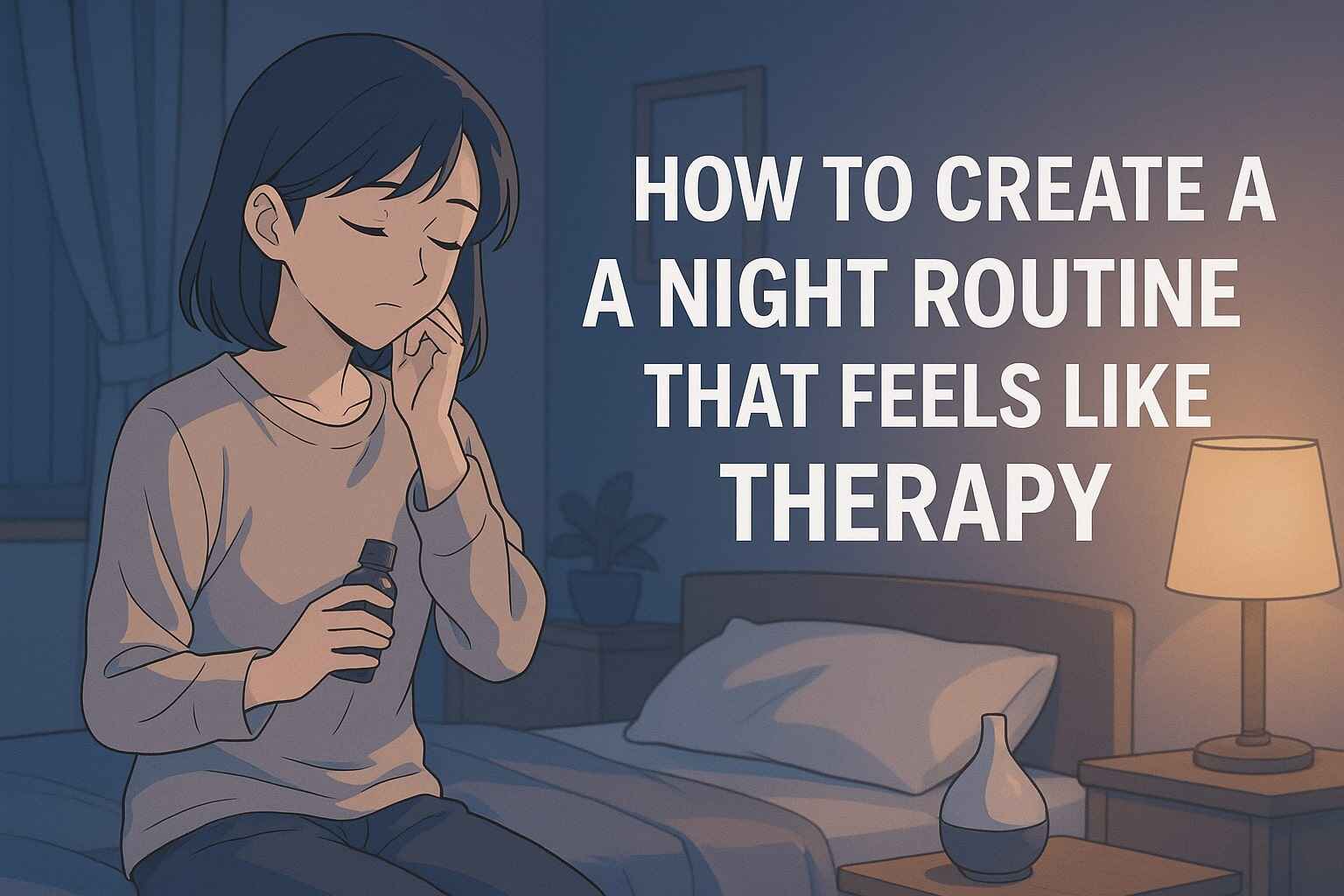Ever find yourself lying in bed, scrolling endlessly, yet feeling more wired than relaxed? You’re not alone. For many, nighttime has become less about winding down and more about catching up—with social media, unfinished tasks, or a racing mind. But science and psychology say otherwise: your night routine should be your sanctuary.
In fact, the right routine can mimic the benefits of therapy, grounding your nervous system, calming intrusive thoughts, and preparing you for restorative sleep. So, what’s the secret sauce? Let’s break it down.
🧘 1. Start With a Soft Cutoff (Not a Hard Stop)
Instead of abruptly ending your day with a “lights out” approach, create a transition phase—a gentle glide from stimulation to stillness. Think of it like landing a plane, not crashing it.
-
Ideal time: Start winding down 60–90 minutes before bed.
-
What to avoid: Emails, bright screens, or intense conversations.
-
Try this instead: Soft lighting, ambient music, or stretching.
“Almost everything will work again if you unplug it for a few minutes… including you.” — Anne Lamott
☕ 2. Choose Soothing Over Stimulating
Not all nighttime habits are created equal. A good night routine includes activities that tell your brain: “It’s safe to slow down.”
Some calming choices backed by science:
-
Herbal tea (like chamomile or lavender)
-
A warm shower or bath
-
Gentle yoga or breathwork (4-7-8 breathing works wonders)
🚫 Skip: caffeine, sugar, or anything intense like action movies or heated debates.
📔 3. Unload Your Mind With a “Mental Download”
Racing thoughts? Try a 5-minute brain dump—grab a journal and write everything down, no structure needed.
This can include:
-
Worries
-
To-do lists
-
Random ideas
This clears your working memory, preventing overthinking at bedtime and helping your subconscious process more peacefully.
📖 4. Nourish Your Mind With Something Gentle
Consider this part “soul food.” What you consume before sleep influences how you dream, rest, and reflect.
Good options:
-
A calming podcast
-
Audiobooks or light reading (fiction works better than non-fiction)
-
Guided sleep meditations
Avoid: doomscrolling or binge-watching. What you feed your brain matters.
"The best bridge between despair and hope is a good night’s sleep."
— E. Joseph Cossman
🛌 5. Make Your Bedroom a Ritual Space
Your environment should invite sleep. Think: cool, dark, and quiet.
Enhance your space with:
-
Dim, warm-toned lighting
-
A diffuser with lavender or cedarwood essential oil
-
Minimal clutter
-
Soft fabrics like linen or cotton
Even something as small as folding your blanket slowly can signal the body it’s time to switch modes—from active to receptive.
Your night routine isn’t just a checklist—it’s a form of self-respect. It tells your body and mind, “You deserve rest. You deserve peace.”
And when practiced intentionally, this routine can heal in the same way therapy does—slowly, gently, consistently.
If your days are chaotic, let your nights be sacred.






